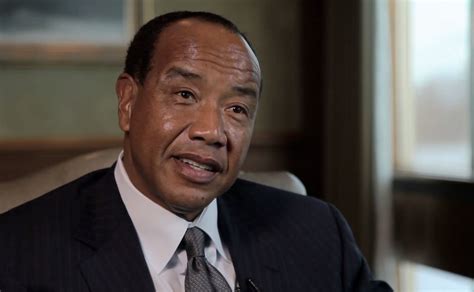Top 1001 Managers Quotes & Sayings
Explore popular Managers quotes.
Last updated on April 14, 2025.
I think there are probably too many hedge fund managers in the world, as well as active fund managers. The hedge fund industry is very efficient. We see a lot of hedge funds open and a lot close. It's very binary. You either succeed or fail in the hedge fund world. If you succeed, the amount the managers make it beyond most people's wildest dreams of wealth.
One of the biggest challenges we face today is finding managers who can sense and respond to rapid shifts, people who can process new information very quickly and make decisions in real time. It's a problem for the computer industry as a whole - and not just for Dell - that the industry's growth has outpaced its ability to create managers.
Managers are not confronted with problems that are independent of each other, but with dynamic situations that consist of complex systems of changing problems that interact with each other. I call such situations messes. Problems are extracted from messes by analysis. Managers do not solve problems, they manage messes.
I'm not proud of this at all, but I'm someone who has relied on business managers and accountants and career managers to run the whole bureaucratic side of my life for the last 16 years, so anything, from filing tax returns to paying credit card statements, is something that I feel rather fortunate to have been out of the loop on.
Congress has all sorts of rules, hedge fund managers, private equity managers, executives, movie stars, fall into that allow them to escape or defer into the future not paying their taxes. And if you can defer your tax into the future, it's the best deal in the world, because you don't just get to eat your cake and have it too. You get to eat your cake and have a bigger cake.
Give serious thought to why your company should care about your strategy. Specifically, find problems that the board wants to be solved. What are senior managers scared of? Part of becoming a credible strategic thinker is learning effective approaches to selling ideas for your situation. You’ll know that you’re getting better at selling (or pitching) strategy when managers start coming to you when there is strategic thinking to be done.
Insecure managers create complexity. Frightened, nervous managers use thick convoluted planning books and busy slides filled with everything they’ve known since childhood……. They worry that if they’re simple, people will think they’re simple minded. In reality, of course, it’s just the reverse. Clear, tough minded people are the most simple.
Managers used to say, 'I have a gut feeling.' Do you know what a gut feeling is for a professional manager? It's a pattern that they recognize. But if your system can recognize that pattern, if it's not just a couple of managers who know that pattern, then the system's gut feeling can tell you which way to go. That's really liberating.
One might think of investment managers as astronomers and CEOs as astronauts. The two roles are radically different with distinct personality traits. Like astronomers, investment managers tend to be introverted, skeptical, and very analytical. CEOs, like astronauts, are the exact opposite, typically being extroverts, optimists, and, well, leaders.
As a result of overdiversification, their (active managers) returns get watered down. Diversification covers up ignorance. Active managers haven't done enough research into any of their companies. If managers have 200 positions, do you think they know what's going on at any one of those companies at this moment?
I'm making a case against how money managers are handling customers' money. The objective of the customer is not being met if the fund managers are diversifying their assets into hundreds of businesses. If they do this, they are typically performing close to the indexes. But that's not the way wealth is created.
Managers are already voracious consumers of theory. Every time they make a decision or take action, it's based on some theory that leads them to believe that action will lead to the right result. The problem is, most managers aren't aware of the theories they're using, and they often use the wrong theories for the situation.
Self-dealing, essentially, occurs when managers run companies to line their own pockets instead of those of the companies' owners. It's been a perennial problem in American capitalism and became a real dilemma when America moved toward a model in which corporations would be run by professional managers who had only small ownership stakes.
The important word there is inspire. The key difference between managers and leaders is that managers tell people what to do, while leaders inspire them to do it. Inspiration comes from three things: clarity of one's vision, courage of their conviction and the ability to effectively communicate both of those things.




















































